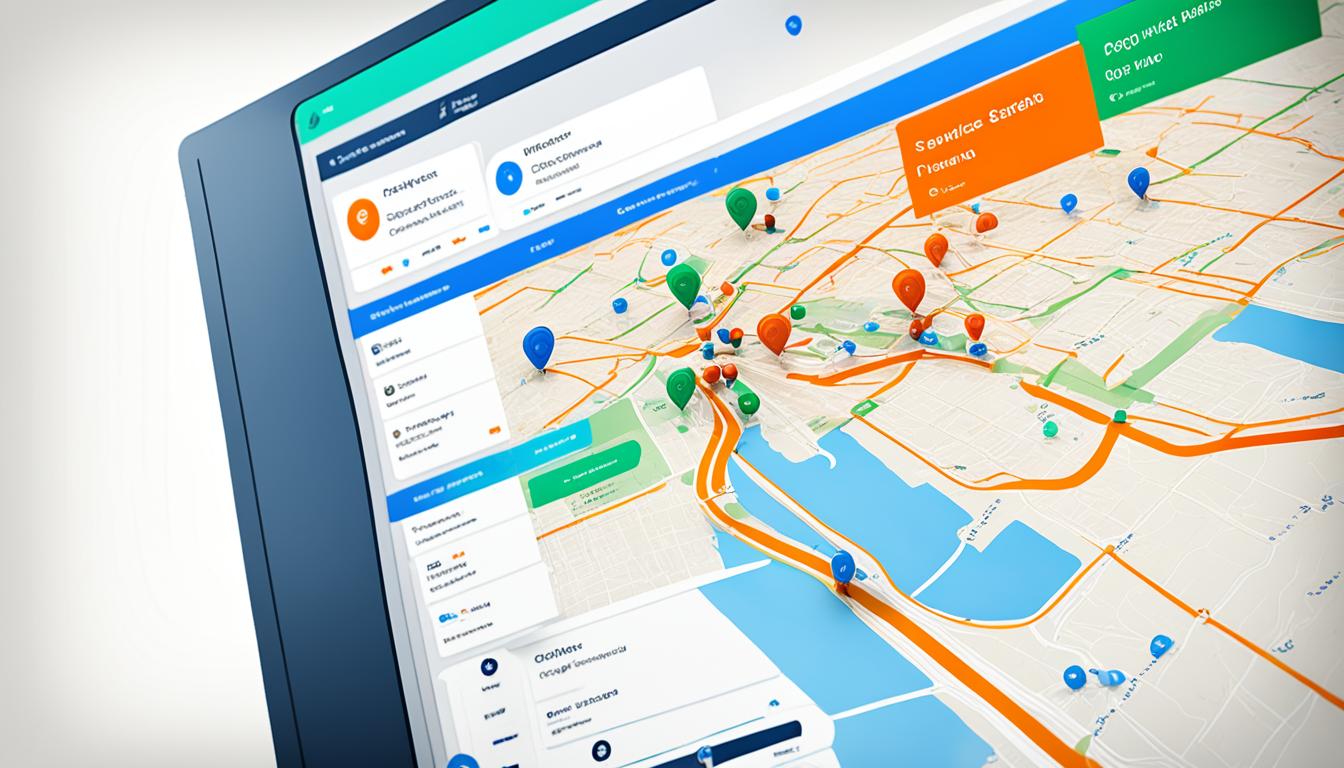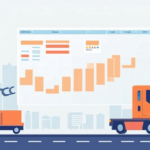In today’s service-driven economy, small and medium-sized enterprises (SMEs) recognize that adopting field service management software alone is insufficient to remain competitive. To deliver exceptional customer experiences and maximize operational efficiency, these businesses are turning towards FSM CRM integration—the process of unifying field service management capabilities with established customer relationship management software. This blog explores how integrating CRM within FSM platforms can revolutionize service delivery for companies of all sizes, particularly focusing on smaller operations aiming to scale without compromising customer satisfaction.
Understanding FSM CRM Integration

What Is Field Service Management Software?
Field service management software refers to cloud-based platforms designed to help organizations coordinate field operations, including scheduling, dispatching, inventory management, and on-site reporting. Core modules often include service dispatch software, field service scheduling software, and mobile applications that empower technicians to manage jobs remotely.
What Is Customer Relationship Management Software?
Customer relationship management software encompasses tools that enable businesses to track and manage all interactions with prospects and existing customers. Features typically cover contact management, sales pipeline tracking, marketing automation, and customer support case management, all aimed at nurturing leads and strengthening customer relationships.
The Concept of FSM CRM Integration
FSM CRM integration involves linking FSM systems with CRM platforms—either through native integrations or middleware—to ensure seamless data flow between customer-facing teams and field operations. This unified approach eliminates data silos, ensures a single source of truth for customer information, and allows both office-based staff and field technicians to access consistent customer histories and service details in real time.
Key Benefits of FSM CRM Integration
Centralized Customer Data and Improved Visibility
Integrating CRM with field service management software allows organizations to centralize customer profiles, service histories, and communication logs in one unified database. This consolidation reduces errors from duplicate data entry and empowers service teams to deliver tailored solutions based on comprehensive customer insights.
Enhanced Scheduling and Dispatch Efficiency
Field service scheduling software powered by integration with CRM platforms provides dispatchers with real-time visibility into technician availability, skill sets, and proximity to job sites. Automated scheduling algorithms optimize routes, minimize travel time, and maximize resource utilization, resulting in faster response times and reduced fuel and labor costs.

Real-Time Mobile CRM Capabilities
Modern mobile CRM software enables field technicians to access and update customer records, job details, and inventory statuses directly from their smartphones or tablets—even in offline mode. Features such as photo attachments, digital signature capture, and instant messaging ensure accurate data capture and immediate knowledge sharing between field and back-office teams.
Personalized Customer Engagement and Satisfaction
Integrated systems enable automated notifications—such as appointment reminders, technician arrival alerts, and post-service surveys—tailored to individual customer preferences. Personalized interactions foster trust and loyalty, driving higher satisfaction scores and repeat business.
Cost Savings and Operational Efficiency
Eliminating manual data transfers between CRM and FSM platforms reduces administrative labor and minimizes costly mistakes. Centralized scheduling and dispatch automation cut down on overtime and emergency service fees, while accurate inventory tracking curtails overstock and stockouts.
Data-Driven Decision Making and Analytics
An integrated field service management CRM ecosystem offers advanced analytics and reporting dashboards that combine customer metrics with field performance data. Managers can track key performance indicators (KPIs) such as first-time fix rate, average response time, and customer satisfaction scores, enabling continuous improvement initiatives and strategic decision-making.
Essential Features to Look for in FSM CRM Integration
- Service Dispatch Software: Look for real-time technician tracking, automated route optimization, and configurable dispatch rules to ensure the right technician arrives on time.
- Field Service Scheduling Software: Advanced scheduling engines should handle recurring jobs, priority flags, and last-minute changes without manual intervention.
- Mobile CRM Software: Ensure offline capabilities, photo and document attachments, and easy-to-use interfaces for field staff.
- Customer Relationship Management Software: Seek CRM modules that support omnichannel communication, sales pipeline visibility, and automated marketing workflows.
- Integration Middleware or APIs: Robust, well-documented APIs or pre-built connectors reduce development time and maintenance overhead when linking CRM and FSM systems.
- Analytics and Reporting: Dashboards combining field metrics and customer data help identify service trends and opportunities for upsell or process improvements.
- Security and Compliance: Ensure the integrated solution adheres to industry standards for data security and privacy regulations, such as GDPR or HIPAA, if applicable.
Best Practices for Implementing FSM CRM Integration
1. Conduct a Thorough Needs Assessment
Map out existing processes, identify pain points (e.g., duplicate data entry, missed appointments), and define integration goals—such as reducing response times or improving customer satisfaction.
2. Choose the Right Technology Stack
Evaluate CRM and FSM platforms based on feature fit, scalability, integration capabilities (native connectors vs. middleware), and mobile app robustness.
3. Plan Data Migration Carefully
Cleanse customer records, define data mapping rules, and schedule migration in phases to minimize service disruptions. Always maintain data backups and rollback plans.
4. Invest in Change Management and Training
Provide role-based training for dispatchers, technicians, and customer support teams. Use hands-on workshops and knowledge bases to build confidence in the new integrated workflows.
5. Define KPIs and Monitor Progress
Establish metrics—such as first-time fix rate, average resolution time, technician utilization, and Net Promoter Score (NPS). Regularly review dashboards to ensure the integration meets business objectives.
6. Iterate and Optimize
Gather feedback from end users and customers post-implementation, then refine workflows, add automation rules, and update training materials accordingly.
Overcoming Common Challenges
- Data Integration Hurdles: Address discrepancies in data formats and validation rules by enforcing standardized input fields and leveraging middleware that handles transformations.
- Ensuring User Adoption: Combat resistance by involving end users early in the selection process, highlighting personal productivity gains of the integrated system.
- Maintaining Data Quality and Security: Implement role-based access controls and regular audits to ensure data integrity and compliance with privacy regulations.

Future Trends in FSM CRM Integration
AI and Predictive Maintenance
Artificial intelligence is increasingly embedded into field service management software, enabling predictive maintenance models that forecast equipment failures before they occur. AI algorithms analyze historical service data and sensor readings to schedule preventive service visits, reducing downtime and repair costs.
IoT and Connected Devices
The proliferation of IoT sensors allows real-time monitoring of assets in the field. When integrated with CRM and FSM systems, these devices can trigger automated service requests, ensuring proactive customer support.
Advanced Analytics and Dashboards
Future field service dispatch software will leverage machine learning to surface insights—such as technician performance benchmarks and churn predictors—for continuous service improvement.
In an era where customer expectations are higher than ever, FSM CRM integration offers a powerful competitive advantage. By unifying field service scheduling software, service dispatch software, mobile CRM software, and customer relationship management software into a cohesive ecosystem, businesses can drive operational excellence, elevate customer experiences, and unlock new revenue streams. As the field service management software market continues its rapid growth trajectory, organizations that prioritize seamless CRM integration will be well-positioned to lead their industries with proactive, data-driven service excellence.
Author Bio

Palani Kumar
Palani Kumar is a seasoned digital marketing professional with over 13 years of experience in crafting impactful strategies for B2B brands.
As the marketing lead at FieldAx, he focuses on bridging the gap between technology and business growth, simplifying complex field service management concepts into valuable insights.
Passionate about delivering informative and practical content, Palani writes about industry trends, best practices, and innovations that help businesses optimize their field operations.
When not working on marketing strategies, he enjoys exploring history, engaging in thought-provoking discussions, and appreciating the balance between technology and tradition.





